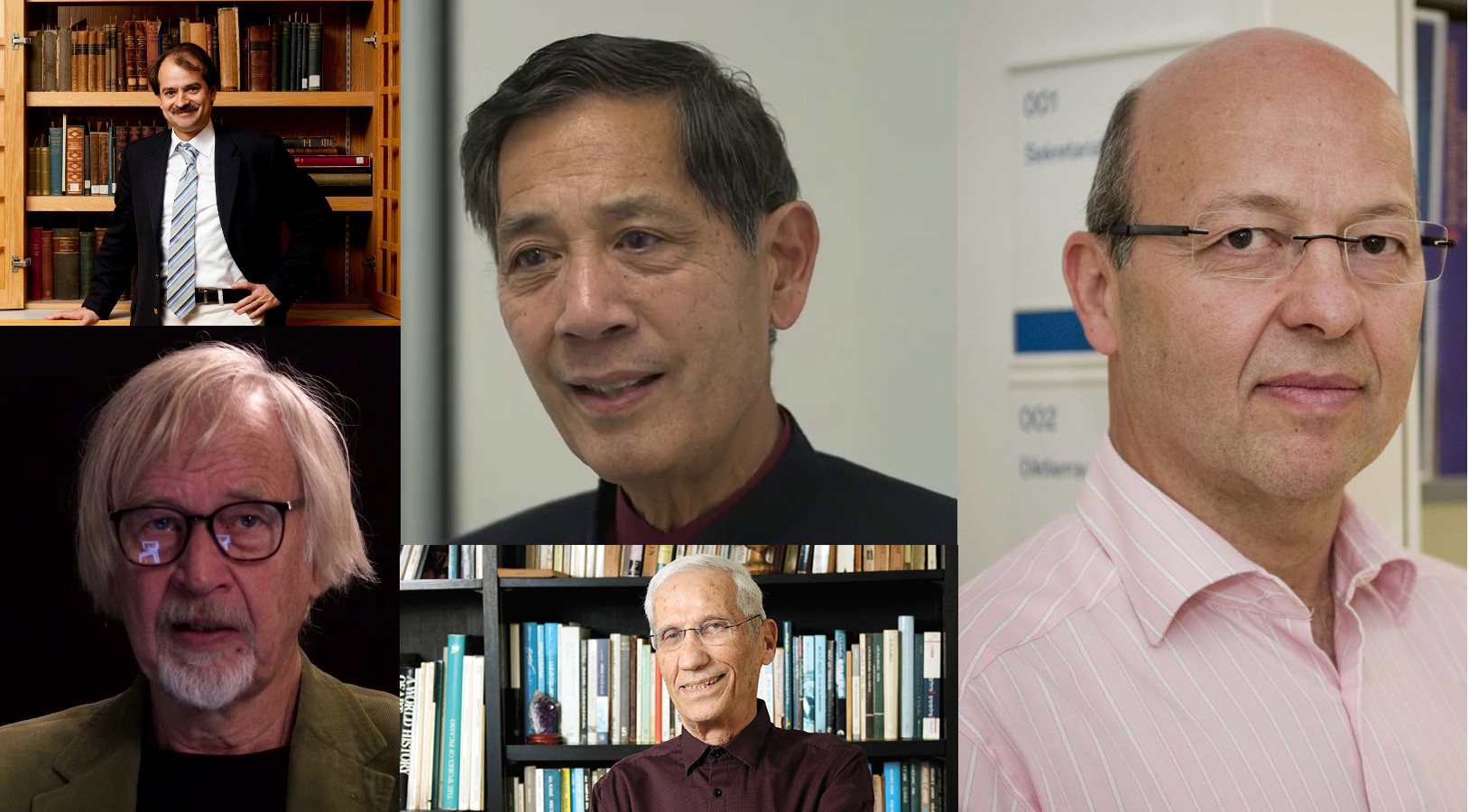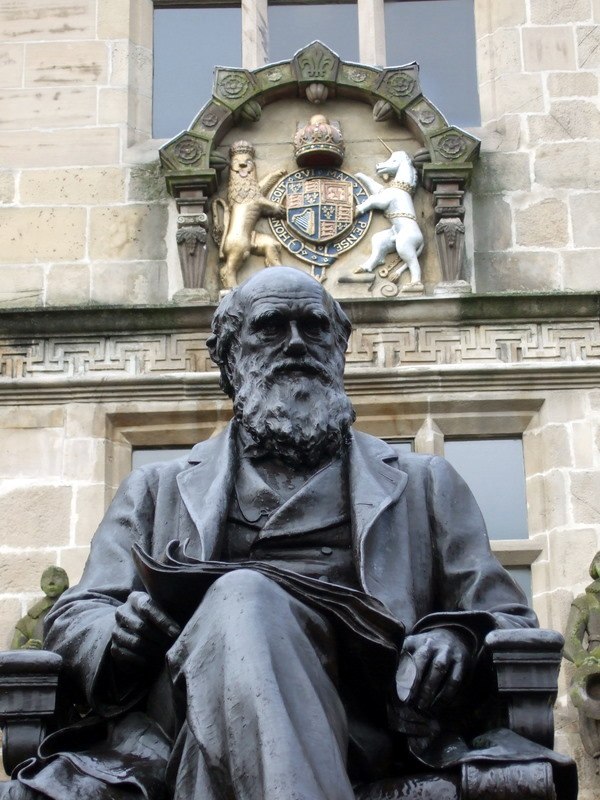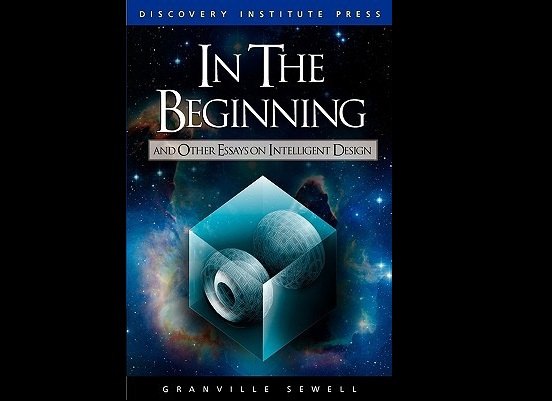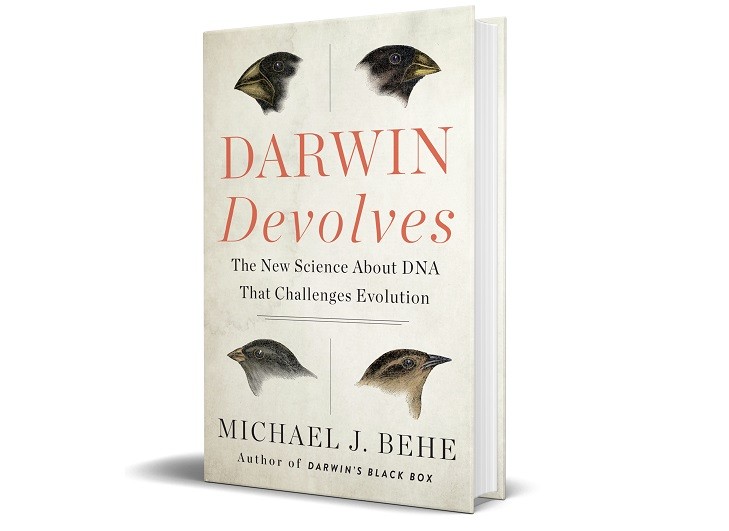The spiritual side of health from a solid foundation of creation teaching.
Will American Christians Help Usher in the New World Order, or Resist It?
To answer the question posed in the title of this article: Will American Christians help usher in the New World Order, or resist it? - the most obvious answer based on recent history, is that there is no reason to believe that the Christian Church in America will resist it, but probably help usher it in. I addressed some of the reasons why in a past article: "Another COVID Small Business Casualty: The American Christian Church." Very few churches defied the lock down orders that were put in place earlier this year over the Coronavirus Plandemic. There were a few exceptions, and one of them in Mississippi paid the price, as an arsonist burned it to the ground as a warning to those who dare to defy the government's orders. In a few cases, pastors were arrested when they tried to keep their churches open. With the country opening back up again in most states, the CDC has issued guidelines for churches and other faith-based organizations, which includes reporting church members who are sick to the local health authorities. A woman who reports that she participated in a recent "White House prayer call for faith leaders" states that Dr. Deborah Birx participated in the call to instruct these "faith leaders" how to conduct business in their places of worship, which allegedly included no singing, shorter sermons, staying home if possible, and encouraging the elderly and immune-compromised to get the COVID vaccine when it comes out. Hearing her response to this in a Facebook Live recording this week, which is now going viral, gives one hope that maybe some Christians are beginning to wake up. She stated that while Dr. Birx was talking, she became outraged, but everyone on the call was muted except for Dr. Birx. Listen to her reaction to Dr. Birx and the CDC guidelines for churches.
The Myth of Right vs. Left, Liberal vs. Conservative – Top 9 Myths Believed by BOTH Sides to Usher in a New World Order
I have previously written about how the events unfolding very rapidly before us today are not accidental events, but planned events with a very specific goal, a New World Order. The New World Order is being planned by very rich and very influential people who have been planning this for a long time. They want to reduce the world's population and establish a single government to rule the world, along with a single belief system. I have unmasked who is at the top of this group as well, and if you have not read that article which was published earlier this week (June 2020), please read that first to understand the context from which this article is based. "Unmasking Who is Behind the Plandemic and Rioting to Usher in the New World Order." These global leaders, known as the Illuminati, control the world's monetary system, and they fund the wars of the world as well, funding both sides. Wars are the primary way that they transfer the wealth of the common people to the richest 1% of the world. While the history of these forces can be traced really all the way back to the beginning of the human race, the modern struggles that have caused wars started in Europe in the 1700s which funded the revolutions of most European kingdoms, and ushered in World War I, followed by World War II which started the beginning of the Industrial Age. Since World War II there have been many regional wars that consolidated wealth for the rich central bankers, but war has also been redefined several times in more recent history with the "Cold War" relations between the U.S. and the old Soviet Union, the "War on Terror" after 911, and most recently this year, 2020, the War Against the Unseen Enemy: The Coronavirus. To make money from these wars, the Globalists who control the world's monetary supply need conflict (something to stand for and fight against), and a large military to manage the wars. As I discussed in the article "Unmasking Who is Behind the Plandemic and Rioting to Usher in the New World Order," the political thought that is behind today's political divide of "Left vs. Right" was written and put into action by the secret society known as the Illuminati back in the 1700s. While there are obviously real differences between the two parties, both sides end up with the same result: A New World Order run by the Illuminati who control the monetary system through the central banks. Most people holding to one side or the other in this political debate don't even know that the end result is the same, and that the real struggle against tyranny lies elsewhere. So here are what I call my "Top Nine Myths" that I believe we have been conditioned to believe as true, and that are believed and seldom questioned by either side of this fake political debate between Right and Left, and what makes up the two political parties. The Left and the Right both have a common enemy, an enemy I exposed in the "Unmasking" article. And the longer we keep fighting each other and blaming each other for society's problems, the stronger he becomes.
The Constitution of the United States and The Bill of Rights
We want to have the Constitution of the United States and the Bill of Rights on Health Impact News as a matter of record, for anyone to link to and use, and in the event that this website disappears or is destroyed, let it be known that it contained a copy of the Constitution of the United States of America and the Bill of Rights.
Unmasking Who is Behind the Plandemic and Rioting to Usher in the New World Order
As our world changes rapidly right before our very eyes, it has been very well established, at least for those who follow the alternative media and not the propaganda corporate media, that there is an overall plan in place that is being implemented at a very fast pace, and of course the natural questions being asked by those who realize this is: Who is behind all of this? It is not a new plan. It is a plan that has existed for a very long time, and those who are working to implement the plan are not even hiding it anymore as we have previously reported. It is a plan for a New World Order, and we have covered this in previous articles. Those working to implement the plan have done so mostly behind the scenes throughout the years, and those who discover the leaders of this movement and dare to publish it, have either been eliminated if they were too big of a threat, or just ridiculed as "conspiracy theorists," since they control the media and have conditioned the public for many, many years to believe the things they want us to believe. In what is now very obviously being seen as a prophetic film, "Out of Shadows" exposes who the real enemy is behind all of this, and if you have not watched it yet, it is time to do so. It has been viewed by almost 14 million people on YouTube at the time of my writing this article, and even if Google takes it down off of YouTube, you will still be able to watch it on other platforms, as long as the Internet stays up. The producers of "Out of Shadows" are not the first ones to unmask the true enemy behind the New World Order, of course, so this article will provide evidence and further testimony to show who the real enemy is, and the group of people following his leadership in a group known as the Illuminati. Many groups are now being blamed in the corporate media, and even in the alternative media, as causing the current riots that have spread across the country. And while there is some truth in naming these groups, it is obvious that this plan is very well organized, and very well funded. What we are seeing unfold before our eyes today in the U.S., very much resembles what we have seen throughout history in countries that have experienced regime change through social unrest, and in most of those situations you can find ties to the U.S. intelligence agencies, particularly the CIA. Much of what I am going to present in this article is based on the testimony of two whistleblowers: one from the FBI, and one from the CIA.
Another COVID Small Business Casualty: The American Christian Church
All across the U.S. small businesses are failing because they closed down during the COVID-19 situation. In some sectors, such as the restaurant industry, it is estimated that more than 50% of these small businesses will never re-open. Today I am going to write about one of the largest groups of small businesses that have also been hit hard by closing down during this "crisis" - the American Christian Church. American churches today are businesses, mostly non-profit small businesses. Hence, they are corporations setup just like other American businesses, requiring licenses and subject to the laws of the U.S. and their respective states. As we have seen recently, the government authorities can shut them down farily easily. The true body of Christ, however, is not a 501c3 non-profit church business. It is a living organism of believers not dependent on any business, and the leader is Jesus who rules from Heaven and empowers his people with supernatural power. This organism is not so easily defeated, if they function together as a body.
Stop the Fear-Mongering! 12 Medical Scientists Speak Out on COVID19 Responses
Fear over the coronavirus is gripping the nation and world, as within a short period of time life around the globe has drastically changed very suddenly. The main question facing everyone in the U.S. today is: How serious is this? Is the response the government is making right now consistent with the threat this virus presents? Some are proposing that anyone in the media who dares to question the official narrative should be silenced for the sake of "public health." Facebook, for example, took strong actions against Health Impact News by claiming we were publishing "fake news," mainly by publishing the views of Dr. Andrew W. Saul, Editor of the Orthomolecular Medicine News Service, who published news about successful intravenous Vitamin C therapy which had started in China. And yet this week, the New York Post reported that the same therapy had started at hospitals in New York City. With the Coronavirus situation affecting virtually every single person on the planet right now, suppressing alternative information that goes against the "mainstream" narrative is a very dangerous precedent, and is a clear violation of the U.S. Constitution's First Amendment which protects freedom of speech and freedom of the press. It is especially concerning when one of my colleagues in the alternative media, without even contacting me directly, publicly demands that we retract one of our articles authored by a medical doctor, simply because this person believes his view of the current situation is the only correct view. I do not pretend to be an expert on medical science, which is why Health Impact News publishes alternative views by medical doctors and other scientists who are experts in their field. During difficult days like the ones currently facing us, I believe the public has a right to read all sides of the issue and make up their own minds. Caution is certainly prudent, but fear? Among all this fear, where is faith in God? The opposite of fear is "faith." Have we lost our way as a nation? Does the phrase inscribed on our currency "In God we Trust" mean anything anymore? Faith in God does NOT mean we will not face difficult times. On the contrary, often those who are most faithful face the most difficult trials in life. Faith in God means we trust that there is a stronger power than ourselves controlling the affairs of humanity, and that if we trust in him, he will give us the strength to endure whatever trials come our way.
Mexican Women Being Used to Impregnate with Embryos to be Used in Research
Women in Mexico were paid $1400 to be hyperstimulated so their ovaries released bountiful eggs instead of one during their cycle. They then underwent artificial insemination, resulting in early pregnancy with multiple embryos, which were then flushed out of their bodies for study. This “experiment” was very wrong on at least four fronts. First, it created human life for the purpose of experimenting upon it. Second, it paid women to have abortions (when all the embryos were not flushed). Third, it treated women as objects, merely as “a Petri dish,” to quote bioethicist Lorie Zoloth. Fourth, hyperstimulation can have serious side effects, even leading to occasional death. Add in the likelihood that the women were very poor, and you have a real exploitive circumstance.
How Science Lost Its Mind
Before Darwin, nearly everyone, in every corner of the world, believed in some type of ‘‘intelligent design,” and the majority still do. That is for good reasons. Since the publication of Origin of Species, science has discovered that living things are far more complex and clever than Darwin ever could have imagined. So how did it happen that the majority of our scientists “lost their minds” and are unable to see the design in living things that is so blindingly obvious to the layman?
Study: Sleep Cleanses the Brain of Toxic Waste Products Accumulated During the Day
An insidious kind of brainwashing goes on without your awareness. It continues surreptitiously every hour of the day and night. But not to worry; this brainwashing is intelligently designed, and it’s good for you. In fact, you couldn’t live without it!
Thanksgiving: The Neuro Benefits of Practicing Gratitude
Across the U.S., American families and friends will gather on the fourth Thursday of November to unwittingly flood their brains with dopamine and serotonin in a celebration of gratitude rooted in English traditions that date back to the Protestant Reformation. However, the neuromodulating effects of being grateful can profoundly change your life for the better when practiced on the daily, rather than once a year over a wishbone and your Auntie May’s favorite stuffing. While tradition is important in the human experience and a day set aside to give thanks and reflect on all our blessings is a noble occasion, practicing gratitude daily will lead to a happier, healthier you and even reshape your brain according to scientists, with the key being that you must really feel it for it to wield this powerful influence over your physiology and psychology. Gratitude can act as a natural antidepressant by increasing the neurotransmitters, dopamine and serotonin, and sending them hurtling down existing neuropathways as well as forming new neural circuitry. This effect is particularly strong when we ask ourselves what we are grateful for and are mindful of it. Choosing to practice gratitude has been shown in study after study to create new neurocircuitry through which dopamine can influence the reward center of the brain.
Remembering Law Professor Phillip E. Johnson (1940-2019): The Man Who “Lit the Match” for Intelligent Design
Law Professor Phillip Johnson passed away on November 2, 2019 at the age of 79. I became aware of Professor Johnson in 1991 with the publication of his book, Darwin on Trial. Johnson's book was highly controversial, and changed American culture. In the early 1990s when he wrote this book, it was career suicide for anyone in academia to take a position against Darwinian evolution, and most of the criticisms of Darwin were found in religious circles under the teaching of "Creationism." It took a law professor like Phillip Johnson, who was not part of the field of biology or other natural sciences, to write a scholarly critique of Darwin's theories without the threat of censorship, loss of funding, or losing tenure at a major U.S. University. As a law professor at the prestigious University of California Berkeley, his voice demanded to be heard, as he took a legal approach to examine the evidence of Darwin's theories. Many believe that his foundational book, Darwin on Trial, was the beginning of the modern day "Intelligent Design" movement. Intelligent Design separates itself from "Creationism" as it looks at the scientific evidence in the field of origins, and draws conclusions based on the scientific evidence, without relying on any religious teachings. It concludes that the science points to an intelligent design in nature, and leaves the question of "who" the designer is to religion.
Diarrhea and the Appendix are Signs of Intelligent Design
In my new book, Foresight: How the Chemistry of Life Reveals Planning and Purpose, I argue that the synergistic action of diarrhea and the appendix provides a strong case for foresight and thus for intelligent design. Jerry Coyne, writing at Why Evolution Is True, has responded. For that I am grateful. See, “ID craziness: Diarrhea and the appendix are signs of intelligent design.” I wish, enthusiastically, to reply. The subject under discussion is so-called vestigial organs, specifically the appendix. For decades we were told that — due to evolution — our body includes organs that have lost their functions and are therefore in the process of being eliminated. Dr. Coyne adds that some of those condemned organs, by accidently finding other functions, may get lucky enough to escape extinction. This is possible, I agree. The “vestigial organs” are taken as strong evidence for evolution and against ID. After all, an intelligent designer would have no use for useless organs. With that I also agree. However, we must let the data speak. When we do, learning more about the physiology of our body, we find that “vestigial organs” have amazing functions after all.
Doctor Under Investigation Could Lose License to Practice Medicine for Praying with Some Patients
A doctor in the UK is being investigated by the General Medical Council (GMC) because a complaint was made against him for praying with his patients. Dr. Richard Scott is a General Practitioner at Bethesda Medical Centre in Margate, Kent. Dr. Scott states that he only prays with about one out of every 40 patients, and that he always asks for their permission first. Of those he asks, about 90% accept, and the ones who do not, he respects their right to refuse. The complaint to the General Medical Council was allegedly not made by any of his patients, but by an "acquaintance" of one of his patients, who then worked with The National Secular Society (NSS) to lodge the complaint. The NSS allegedly wrote that a "highly vulnerable patient" was uneasy with the use of prayer during a consultation. NSS chief executive Stephen Evans reportedly confirmed that the complaint came from someone known to the patient rather than the patient themselves.
Canada Court Forces Doctors to Euthanize and Perform Abortions
Here’s the story: The Canadian Charter (Constitution) guarantees “freedom of conscience and religion” — a stronger and more explicit protection of religious liberty than our First Amendment. After the Supreme Court created a right to euthanasia, Ontario passed a law requiring doctors to kill legally eligible patients who want to die or provide an “effective referral” if they have moral objections — i.e., procure a doctor known by the dissenter to be willing to euthanize patients. Catholic and other religious doctors sued to enforce their Charter liberties. Referring equals complicity, the doctors argued, and thus the law forces them to violate their religious beliefs and consciences. In one of the world’s most important “medical conscience” rulings, a trial judge admitted the doctors’ Charter rights were indeed infringed. But he ruled that a right (nowhere mentioned in the Charter) to “equal and equitable access” to legal and government-funded medical interventions trumped doctors’ freedom of religion. Now a Court of Appeals has affirmed, ruling that doctors must not only euthanize or refer, but also abort or refer, and provide any other controversial legal service that a patient might want or refer — their religious freedoms or moral consciences be damned.
In Canada, Medical Doctors Killed Thousands in 2018
Canadian doctors committed thousands of homicides in 2018. According to an interim report published by the government, in the first ten months of last year, doctors lethally injected 2,613 patients (with one assisted suicide) — and that doesn’t include the homicides committed by doctors in Quebec, Northwest Territories, Yukon, and Nunavut. The report says that about 1.12 percent of all Canadian deaths were caused by euthanasia, a number that is increasing every year. No wonder. Efforts are increasing to normalize lethal injection as a way of death — and soon we are likely to see the killable caste expanded in Canada to include children, people whose deaths are not “foreseeable,” those with dementia who asked to be killed in an advance directive, and perhaps, the mentally ill (as happens regularly in the Netherlands and Belgium). If 1.12 percent of our deaths in the U.S. were doctor-homicides, it would amount to nearly 30,000. These statistics are stark, but they don’t tell the whole story. Because these radical policies have only been in effect for a relatively short time, we don’t yet know the moral costs of allowing doctors to kill sick patients or assist their suicides.
Devolution Is Natural, Evolution Is Not
It is really not necessary to be a biochemist or a paleontologist to understand the main issue in the debate between Darwinism and intelligent design. That is because it is a very simple principle, as I keep emphasizing: natural (unintelligent) causes do not create order (or information). They destroy it. While every other natural process tends to turn order into disorder, Darwinists have always believed that natural selection is the one unintelligent process in the universe that can create spectacular order out of disorder. So I feel vindicated by Michael Behe’s new book, Darwin Devolves, which disputes this belief, and argues that despite all the claims about the creative powers of natural selection, it has never actually been observed to produce anything new and complex, only “devolution.”
Southern Baptist Church: Leader in Foster Care and Adoption – Home to Pedophiles
Southern Baptists are the largest Protestant Christian denomination in the U.S., numbering more than 47,000 churches with over 15 million church members. Only the Catholic Church has more members in the U.S. As with the Catholic Church, the Southern Baptist Convention (SBC) is an integral part of the American foster care and adoption system. Due to its size, one could say the American foster care system would be severely crippled without the involvement of the SBC, which partners with many local organizations across the U.S. to provide foster care and adoption services, primarily through its North American Mission Board, and its "Send Relief" program. We have documented very clearly here at Health Impact News that the foster care system in the U.S. is a billion dollar child trafficking system, and over 85% of child sex trafficking victims are under the control of Child "Protective" Services who take children out of their homes and place them into foster care or with adoptive parents. When Lisa Wheeler wrote an article for the National Review last year titled “Pro-Life Should Include Foster Care, Too,” criticizing American churches for not participating more in state-sponsored foster care programs, we wrote our rebuttal asking why the church would participate in such an evil program? Sadly, as we have previously reported about the Catholic Church and Independent Baptist Churches, child sex abuse by pastors and youth leaders is widespread among Southern Baptists also. A six month investigation by the Houston Chronicle and San Antonio Express-News has found widespread child sex abuse by over 220 Southern Baptist leaders against more than 700 victims since 1998. And these are just the cases that have reached the courts and are a matter of public record. How many others have been covered up and never been reported?
Darwin Devolves: The New Science About DNA That Challenges Evolution
While Stephen Colbert has called Michael J. Behe the “Father of Intelligent Design,” Behe’s arguments have been called, “close to heretical” by the New York Times Book Review, and Richard Dawkins has publicly taken him to task for his “maverick” views. Wherever he goes, Behe makes waves, but has remained singularly focused on doing rigorous scientific analysis that points to controversial but incredible results that other scientists won’t touch. Twenty years after publishing his seminal work, Darwin’s Black Box (over 250,000 copies sold), Behe shows that new scientific discoveries point to a stunning fact: Darwin’s mechanism works by a process of devolution, not evolution. On the surface, evolution can help make something look and act different, but it doesn’t have the ability to build or create anything at the genetic level. Critically analyzing the latest research, Behe gives a sweeping tour of how modern theories of evolution fall short and how the devolving nature of Darwin’s mechanism limits them even further. If we are to get a satisfactory answer to how the most complex, stunning life-forms arose, it’s time to acknowledge the conclusion that only an intelligent mind could have designed life.
Pedophilia Crimes Against Children Inside and Outside the Church – Time to Acknowledge the Child Sex Trafficking Problem
Earlier this year Health Impact News investigative reporter John P. Thomas began a series of articles on child sex trafficking within the Roman Catholic Church. Other Christians who are not part of the Catholic Church might be tempted to believe that such horrible crimes could never happen in their particular church or denomination. However, the Star Telegram in Fort Worth, Texas has recently published a series of articles covering an 8-month investigation in the Independent Fundamental Baptist Churches across the U.S. showing that sexual abuse against children has been rampant and covered up for years. Churches, both Catholic and non-Catholic Christian churches, are a huge part of the child sex trafficking problem in the U.S. These religious institutions receive significant government funding for foster care and adoption services, which we have reported for years now is a Child Trafficking multi-billion dollar business employing hundreds of thousands of people. Church-sponsored organizations, most also receiving significant government funds, are necessary for the State to continue taking children away from parents and putting them into the lucrative foster care and adoption system. As we have investigated the problem of child sex trafficking, we have discovered that the problem reaches to the most elite members of society, and that they depend upon the public not understanding what is happening, or minimizing it and excusing most reports as "Conspiracy theories." In response to this problem, we recently covered the meeting earlier this year in Westminster, London by The International Tribunal for Natural Justice (ITNJ), as the court convened over a 3-day period to launch their Judicial Commission of Inquiry into Human Trafficking and Child Sex Abuse. Therefore, in the third installment of John P. Thomas' investigative reports into child sex trafficking, we seek to help the public understand the full scope of this horrific problem. This problem will continue to exist until enough people in the public wake up and decide something needs to be done to stop these horrible crimes against our most vulnerable citizens: children.























